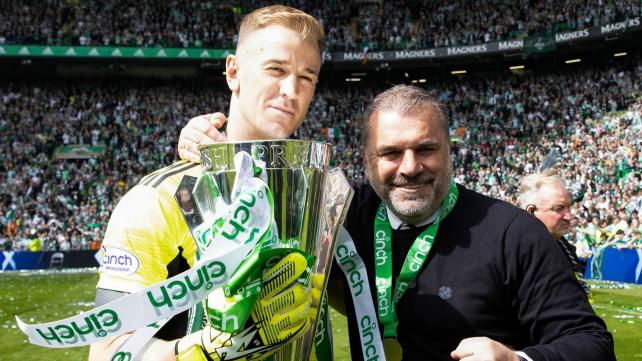The 2024/25 season has been something of an anomaly for Manchester City. After years of domestic dominance under Pep Guardiola, the Citizens find themselves in an unfamiliar position—looking up at rivals in the Premier League table and already eliminated from the Champions League. For a club that has set unprecedented standards over the past decade, this constitutes nothing short of a crisis.
With their place in next season’s Champions League still hanging in the balance as the Premier League enters its final stretch, City are already plotting an aggressive summer transfer strategy to ensure this campaign remains a mere blip rather than the beginning of a decline. At the heart of their rebuilding plans appears to be AC Milan’s Dutch midfielder Tijjani Reijnders, a player whose skillset and physical attributes have drawn comparisons to N’Golo Kanté in his prime.
According to The Athletic’s David Ornstein, Manchester City have already established contact with the Rossoneri regarding Reijnders’ availability, suggesting Guardiola is keen to complete significant business early in the window. This approach makes particular sense given the expanded fixture list awaiting top clubs next season with the introduction of FIFA’s revamped Club World Cup, set to begin on June 15th.
The De Bruyne Void: A Legend Departs
The urgency behind City’s transfer plans has been amplified by Kevin De Bruyne’s announcement that he will leave the club this summer after a decade of extraordinary service. The Belgian maestro has been the creative heartbeat of Guardiola’s City teams, delivering 103 goals and 169 assists across all competitions since his arrival from Wolfsburg in 2015.
De Bruyne’s departure leaves an enormous void—not just in terms of output, but leadership and big-game experience. Having been pivotal to five Premier League titles, two FA Cups, and the club’s first-ever Champions League triumph, replacing such a talismanic figure represents perhaps Guardiola’s greatest challenge since arriving in Manchester.
While Reijnders is not a like-for-like replacement for De Bruyne, his acquisition would signal the beginning of a midfield evolution at the Etihad Stadium. Sources close to the club suggest that rather than seeking a direct replacement for the Belgian, Guardiola is planning a more comprehensive restructuring of his engine room to adapt to the changing demands of elite football.
Who Is Tijjani Reijnders? The Complete Modern Midfielder
At 26 years old, Tijjani Reijnders represents a player entering his prime years. Born in Zwolle, Netherlands, he developed through the youth system at PEC Zwolle before making his breakthrough at AZ Alkmaar. His performances in the Eredivisie caught the attention of AC Milan, who signed him in the summer of 2023 for a reported €19 million (£16 million).
Reijnders’ first season in Serie A demonstrated his remarkable adaptability, quickly establishing himself as an indispensable figure in Milan’s midfield. Far from requiring a settling-in period, the Dutchman has elevated his game to new heights this campaign, contributing 15 goals and 5 assists across all competitions—exceptional returns for a midfielder who often operates in deeper positions.
What truly sets Reijnders apart, however, is his extraordinary engine and versatility. The statistics tell a compelling story: averaging 12.383 kilometers covered per match, he outpaces every other Milan player by a considerable margin. His nearest teammate, Davide Calabria, registers 11.639 kilometers per game—nearly three-quarters of a kilometer less.
This stamina is reminiscent of N’Golo Kanté during his transformative spells at Leicester City and Chelsea, where the Frenchman redefined expectations for midfield industry. Like Kanté, Reijnders combines this relentless running with tactical intelligence, positional discipline, and technical quality—a rare combination that explains why elite clubs are monitoring his situation closely.
The Perfect Guardiola Player? Analyzing the Fit
Throughout his managerial career, Pep Guardiola has demonstrated a clear preference for midfielders who combine technical excellence with tactical flexibility. From Xavi and Iniesta at Barcelona to İlkay Gündoğan and Rodri at Manchester City, Guardiola’s systems rely on intelligent midfielders capable of assuming multiple roles within a single match.
Reijnders ticks all these boxes. His positional versatility allows him to function effectively as a deep-lying playmaker, box-to-box midfielder, or more advanced attacking threat. This flexibility would be invaluable to Guardiola, who frequently adjusts his team’s structure during matches in response to opponents’ tactics.
Moreover, Reijnders’ pressing capabilities align perfectly with City’s approach without the ball. Under Guardiola, City have evolved from a possession-dominant team that sometimes struggled without the ball to a more complete unit capable of aggressive counter-pressing. Reijnders’ stamina and tactical awareness would enhance this aspect of City’s game, potentially addressing vulnerabilities that have been exposed this season.
The Dutchman’s technical security is another attribute that would endear him to the Catalan coach. With a pass completion rate consistently above 90% in Serie A this season, Reijnders demonstrates the ball retention qualities Guardiola demands from his midfielders. Importantly, these aren’t merely safe, sideways passes—Reijnders consistently progresses play, averaging 7.2 progressive passes per 90 minutes.
Financial Implications and Transfer Strategy
While no formal offer has been submitted, football finance experts estimate that Reijnders would command a fee in the region of £45-50 million—a significant investment, but potentially excellent value in the current market for a player entering his prime years who has already proven himself at Champions League level.
This figure compares favorably to City’s other reported targets. Nottingham Forest’s Morgan Gibbs-White would likely cost upwards of £60 million given his homegrown status and Premier League experience, while Bayer Leverkusen’s Florian Wirtz—arguably the standout performer in Xabi Alonso’s undefeated Bundesliga champions—would command a fee potentially exceeding £100 million.
Manchester City’s transfer operations have grown increasingly sophisticated in recent years, with Director of Football Txiki Begiristain focusing on strategic acquisitions rather than headline-grabbing superstars. The pursuit of Reijnders appears to follow this model—identifying a player whose market value may not yet reflect his true worth or potential.
The club’s financial strategy must also account for the potential implications of their ongoing battle with the Premier League regarding alleged financial breaches. While City maintain their innocence, contingency planning for various outcomes of this process will inevitably influence their transfer policy.
Competition for Signature and Milan’s Stance
Manchester City are unlikely to have a clear run at Reijnders, with reports suggesting that several other elite European clubs are monitoring the situation. Paris Saint-Germain, seeking midfield reinforcements as they prepare for life after Marco Verratti, have reportedly made preliminary inquiries. Meanwhile, Bayern Munich—with former AC Milan legend and current sporting director Giovanni van Bronckhorst holding significant influence—are believed to admire the Dutchman’s profile.
AC Milan’s stance remains firm but pragmatic. The Rossoneri consider Reijnders a cornerstone of their project and are under no financial pressure to sell. However, the club’s management have demonstrated a willingness to sanction high-profile departures when substantial offers arrive, as evidenced by Sandro Tonali’s £55 million move to Newcastle United last summer.
Milan’s valuation is understood to be around €60 million (£50 million), reflecting both Reijnders’ performances and the length of his contract, which runs until 2028. This extended contractual situation strengthens Milan’s negotiating position but doesn’t eliminate the possibility of a transfer.
Sources close to Reijnders suggest the player would be open to a Premier League move, particularly to work under Guardiola, whose development of midfielders like Rodri and Phil Foden has enhanced his reputation as a coach who maximizes talent.
Tactical Evolution: How City Might Line Up With Reijnders
Guardiola’s tactical flexibility makes it difficult to predict exactly how Reijnders would fit into Manchester City’s system. However, several configurations appear particularly plausible based on the Dutchman’s skillset and City’s existing personnel.
In a 4-3-3 formation, Reijnders could operate alongside Rodri and Phil Foden in a balanced midfield trio. His energy would complement Rodri’s positional discipline, while Foden would be afforded greater creative freedom. This structure would bear similarities to City’s most successful midfield combinations of recent years, with Reijnders assuming the box-to-box role previously filled by İlkay Gündoğan.
Alternatively, in a 4-2-3-1 system, Reijnders could form a double pivot with Rodri, providing a platform for more attack-minded players like Foden, Jack Grealish, and Bernardo Silva to operate in advanced positions. The Dutchman’s forward runs from deep would add an element of unpredictability to City’s attacking patterns.
Perhaps most intriguingly, Reijnders’ arrival could facilitate a return to a 3-2-4-1 shape that Guardiola has occasionally deployed in high-stakes matches. In this configuration, Reijnders and Rodri would form a midfield partnership responsible for both shielding the defense and connecting with the more advanced midfield line. The Dutchman’s stamina and tactical intelligence would be crucial in covering the expansive spaces this system creates.
The Wider Midfield Overhaul: Beyond Reijnders
While Reijnders appears to be a primary target, Manchester City’s midfield reconstruction is likely to involve additional changes. Kalvin Phillips is expected to depart permanently following an unsuccessful loan spell at West Ham United, while question marks remain over the long-term futures of Matheus Nunes and Mateo Kovačić, neither of whom has fully established themselves as automatic starters.
Academy product James McAtee, currently excelling on loan at Sheffield United, could be integrated into the first-team squad, though another developmental loan hasn’t been ruled out. Meanwhile, Rico Lewis—though primarily deployed as a full-back—has demonstrated the technical and tactical qualities to operate in midfield positions as his career progresses.
The club’s recruitment team is also monitoring several other midfield profiles alongside Reijnders. Real Sociedad’s Martín Zubimendi remains admired for his technical security and tactical intelligence, while Benfica’s João Neves represents a younger, higher-potential option with a correspondingly larger price tag.
Adapting to a Changing Landscape: The FIFA Club World Cup Factor
The introduction of FIFA’s expanded Club World Cup next season presents unprecedented challenges for elite European clubs. The tournament, scheduled to begin on June 15th, 2025, will feature 32 teams from across the globe competing in the United States, with Manchester City among the qualified participants.
This additional competition—coming at the end of an already congested season—is forcing clubs to reconsider their squad-building strategies. The emphasis on depth and versatility has never been greater, with sports science departments warning that players may face increased injury risks due to fixture accumulation.
Reijnders’ extraordinary stamina and durability make him particularly valuable in this context. The Dutchman has demonstrated remarkable consistency at Milan, rarely missing matches through injury or fatigue despite his high-intensity playing style. In the 2023/24 Serie A campaign, he has featured in 36 of 37 matches to date, completing the full 90 minutes in 31 of those appearances.
This reliability, combined with his positional versatility, would provide Guardiola with crucial flexibility as he navigates an increasingly congested calendar. The ability to deploy one player across multiple midfield roles effectively allows for squad rotation without necessarily changing personnel—an attribute that could prove invaluable during periods where fixtures arrive every three days.
The N’Golo Kanté Comparison: Valid or Hyperbolic?
The comparison between Reijnders and N’Golo Kanté is compelling but requires nuance. While both midfielders share exceptional stamina and defensive work rate, there are significant stylistic differences that reflect their distinct developmental backgrounds.
Kanté built his reputation primarily on defensive contributions—interceptions, tackles, and ball recoveries—before gradually expanding his game to include more progressive passing and carrying. Reijnders, conversely, was developed in the technically-oriented Dutch system, with attacking contributions and possession play central to his game from the outset.
The Dutchman stands taller at 6’1″ compared to Kanté’s 5’6″, giving him greater aerial presence. His goal contribution statistics—15 goals and 5 assists this season—far exceed anything Kanté produced even in his most attack-minded seasons under Maurizio Sarri or Frank Lampard at Chelsea.
What makes the comparison valid, however, is the transformative potential both players represent. Kanté’s arrival revolutionized midfield expectations in the Premier League, demonstrating that a single player with exceptional mobility could effectively perform the defensive work previously assigned to two. Reijnders offers similar transformative potential, albeit with a different balance of attributes—combining Kanté-esque industry with greater technical refinement and attacking threat.
Reijnders in European Competition: The Champions League Audition
For Manchester City’s recruitment team, Reijnders’ performances in the Champions League this season have provided the perfect audition for a potential move to the Etihad Stadium. The Dutchman has demonstrated his ability to maintain his Serie A form against Europe’s elite clubs, delivering composed displays against Paris Saint-Germain, Borussia Dortmund, and notably against City themselves in the group stage.
In Milan’s 3-1 defeat at the Etihad in September, Reijnders was arguably the visitors’ standout performer, completing 48 of 51 attempted passes (94% success rate) while covering more ground than any other player on the pitch. His subsequent performance in the return fixture at San Siro—a surprising 2-1 victory for Milan—further enhanced his reputation, with Pep Guardiola specifically mentioning the Dutchman’s influence in his post-match comments.
These performances against elite opposition have apparently assuaged any concerns about Reijnders’ ability to transition to the Premier League’s intensity. While Serie A to Premier League adjustments can prove challenging for some players, the Dutchman’s physical attributes and technical security suggest he possesses the necessary tools to adapt swiftly.
International Pedigree: Performance for the Netherlands
Reijnders’ rise at club level has been mirrored by his emergence as a key figure for the Netherlands national team. Having made his international debut in September 2023, he quickly established himself in Ronald Koeman’s plans, featuring prominently in the Oranje’s European Championship qualifying campaign.
His performances at international level have showcased his tactical adaptability. Under Koeman, the Netherlands have alternated between 4-3-3 and 3-5-2 formations, with Reijnders demonstrating effectiveness in both systems. This versatility would be particularly valuable to Guardiola, whose tactical innovations often require midfielders capable of fulfilling multiple roles within a single match.
With the European Championships approaching this summer, Reijnders will have another platform to demonstrate his capabilities on the international stage. Strong performances in this tournament could potentially accelerate transfer negotiations or—from AC Milan’s perspective—further enhance the player’s market value.
Manchester City’s pursuit of Tijjani Reijnders represents more than just a replacement for the departing Kevin De Bruyne; it signals the beginning of a midfield evolution designed to address the tactical challenges of modern football. In the Dutchman, City see a player whose extraordinary stamina, technical quality, and tactical intelligence embody the attributes required to thrive in an increasingly demanding sporting landscape.
While no transfer is guaranteed until contracts are signed, the early timing of City’s approach suggests genuine determination to secure Reijnders’ signature. For Pep Guardiola, who has consistently demonstrated an ability to evolve his tactical approach throughout his managerial career, the addition of such a complete midfielder would provide exciting new possibilities as he seeks to restore Manchester City to their accustomed position at the summit of English and European football.
As the FA Cup final against Crystal Palace approaches on May 17th, City’s focus remains on salvaging silverware from a challenging season. Yet behind the scenes, the wheels are already in motion for a summer of significant change. In Tijjani Reijnders, they may have identified the first piece of a reconstructed midfield designed to launch the next chapter of the Guardiola era.
Manchester City’s struggles this season represent a significant deviation from their established standards under Pep Guardiola. After completing an historic treble in 2022/23—winning the Premier League, FA Cup, and Champions League—expectations remained sky-high entering the current campaign.
However, a combination of factors has contributed to a relatively disappointing season by their lofty standards. Injuries to key personnel, including long-term absences for defensive lynchpin Ruben Dias and creative spark Jack Grealish, disrupted the team’s rhythm at crucial junctures. Meanwhile, the emotional and physical toll of their treble-winning campaign appeared to manifest in uncharacteristic inconsistency.
In the Premier League, City have suffered unexpected defeats to teams in the lower half of the table, including a shock 2-0 home loss to Nottingham Forest and a 4-2 defeat at Crystal Palace. These results, combined with a series of draws against direct rivals, have left them trailing in the title race with only two matches remaining.
The Champions



